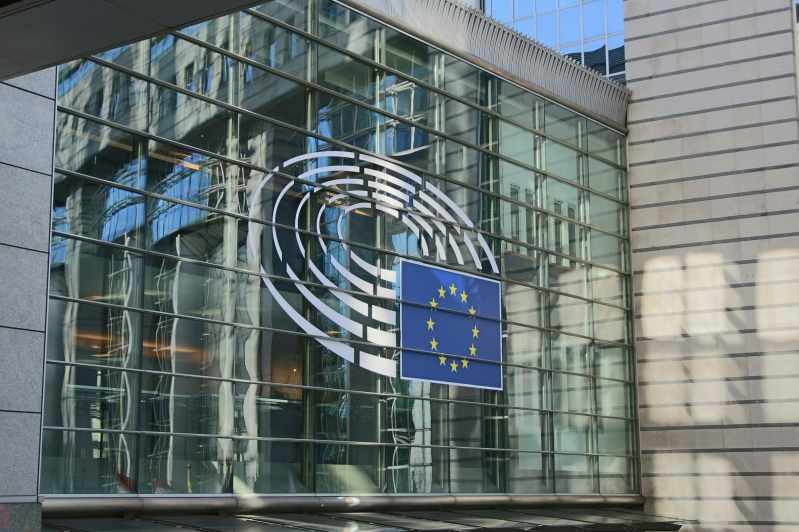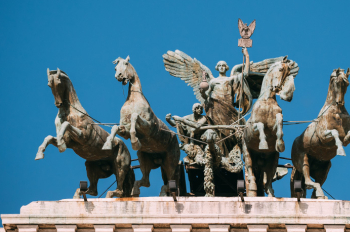
Freedom is a slippery concept. Our very pursuit of freedom can lead to its loss: to captivity, dependence, restriction, enslavement, addiction and poverty.
Freedom to do what we want – rather than what we ought – is deceptive. Yet we live in a society where the right to be free to do what you like is widely accepted. It’s called liberalism. We are autonomous individuals, we are told, free to pursue self-interest, free to discover our ‘authentic selves’.
At the same time, freedom is a concept championed by Christian thinkers throughout history. Freedom of conscience, closely linked with freedom of worship, is the keystone of all freedoms. Luther’s insistence on obeying his conscience, for example, triggered the Reformation.
Yet our freedoms are being threatened today from several sides. We cannot simply take them for granted any more. The danger, instability, and uncertainty in Europe today is reminiscent of when Hitler advanced westwards across Europe and threatened to invade Britain early in 1941. Then, as now, many Americans wanted to remain aloof from Europe’s problems.
President Franklin Roosevelt (FDR) however understood the grave danger of leaving the threat unchallenged. In a famous speech to congress, he urged the American people to recognise that what was at stake was the freedom of speech, the freedom of worship, the freedom from want, and the freedom from fear.
These ‘Four Freedoms’ became foundational to the Atlantic Charter declared by Winston Churchill and FDR in August 1941; and to the United Nations inaugurated a year later. They also undergirded the Universal Declaration of Human Rights adopted by the United Nations in 1948, largely through the work of his widow, Eleanor Roosevelt.
Worldview shift
Today those living closest to the Russian border realise that these hard-fought freedoms are endangered. The long period of international order based on respect for international law and international institutions is facing a head-on challenge.
Over the past few days I have been engaged in a political party meeting in Riga, Latvia – less than 200 kilometres from Russia – followed by a gathering in Vienna of promotors of Marriage Week across Europe. This week I’m exploring with young students in Stockholm the implications of Christian worldview thinking.
In each of these situations, the challenges to freedom coming from both without and within European society have been highlighted.
For a major worldview shift has happened in the western world since FDR’s landmark speech. Widespread rejection of the idea that we are the creation of a loving, intelligent designer of the cosmos, with intrinsic meaning and purpose has profound consequences for all spheres of life. The idea that there is any ‘ought’ has been replaced by the dominant mentality that there is no designer and therefore no design or purpose for human existence. That leaves us ‘free’ to choose our own destiny, our own sexuality and our own social arrangements.
Where however does this ‘freedom’ lead us? C.S.Lewis once wrote that the Christian and the Materialist held different beliefs about the universe. They could not both be right. The one who was wrong would act in a way which simply did not fit the real universe. Does this ‘freedom’ fit reality? Can it sustain flourishing life?
Elephant in the room
My talk in Riga, about rediscovering the roots of the values of peace, equality, tolerance, freedom and justice in the Christian story, was followed by a politician from Northern Macedonia. He spoke about the alarming demographic crisis looming across Europe which too few politicians address. Calling it ‘the elephant in the room’, he presented graph after graph, statistic after statistic, to show how drastically falling birthrates, in Latvia and elsewhere, are leading to fewer consumers, weaker economies, fewer students for schools, lower work-forces in all sectors, fewer workers to pay pensions for older people who live longer, fewer farmers to produce food, and fewer soldiers to defend the land.
If these figures represented the economy, he postulated, newspaper headlines would be warning of imminent disaster. But few are talking about this. Why? Because the remedy involves more migrants and bigger families. That requires the revival of an old-fashioned view of family that doesn’t fit with today’s demands for personal freedom, careers for both partners, sexual diversity and drastic experimentation.
At the Marriage Week gathering the next day in Vienna we talked about families, nuclear and extended, as oases of flourishing life in wastelands of loneliness, cultivated gardens in relational deserts. We may be increasingly in the minority but we can offer a positive, life-affirming view of the human person, endorsing the image of God in humans, the value of the body and the unity of the human being.
Which worldview fits the moral reality? Freedom without or under God?
May our votes in the upcoming elections go to those whose worldview promotes long-term sustainability.
Originally published by WeeklyWord. Republished with permission.
Weekly Word is an initiative of The Schuman Centre for European Studies. Jeff Fountain is a New Zealander holding a Dutch passport, is currently the director of the Schuman Centre for European Studies (www.schumancentre.eu), and lives in Amsterdam, the Netherlands. Jeff graduated with a history degree from the University of Auckland (1972) and worked as a journalist on the New Zealand Herald (1972-3), and as travelling secretary for Tertiary Student Christian Fellowship (TSCF) (1973). He has lived in the Netherlands since 1975, and has travelled and spoken in almost every European country. For twenty years following the fall of communism, he was the European director for the international and interdenominational mission organisation, Youth With A Mission. He was chairman of the international, trans-denominational movement, Hope for Europe, for which he organised two pan-European congresses in Budapest in 2002 and 2011. In 2010, he established the Schuman Centre for European Studies (www.schumancentre.eu) to promote biblical perspectives on Europe’s past, present and future, to encourage effective engagement in issues facing Europe today.





